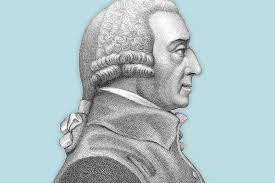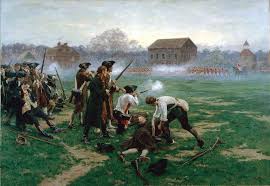George Will continues to warn of the dire consequences of the U.S. government’s worsening fiscal incontinence. Two slices:
This nation, tobogganing swiftly down a steep slope of fiscal irresponsibility, barely notices a blur of alarming milestones. Last week, we sped past this one: A $1.1 trillion deficit in the first six months of fiscal year 2024 that began Oct. 1 resulted in almost as many dollars spent on debt service ($429 billion) as on defense ($433 billion)
This, at the most menacing geopolitical moment since 1945, makes one hope that JPMorgan Chase CEO Jamie Dimon was radically wrong in saying recently that interest rates could reach 8 percent or more in coming years. If they do, deficits will explode even before the Social Security and Medicare trust funds are exhausted, within 10 years.
…..
It is counterintuitive to advocate more direct political control of the Fed amid accumulating evidence that politics is the problem. That the biggest threat to American democracy is American democracy. The fiscal incontinence propelling the nation toward an utterly predictable crisis reflects the majority’s preference: Let’s make unconsenting (because unborn) future taxpayers — debt is taxation, including the tax of inflation, deferred — pay for a significant portion of our consumption of government services. Institutional tinkering with the Fed is no substitute for mature politics.
The Editorial Board of the Wall Street Journal decries Biden’s Trumpian embrace of tariffs. A slice:
While Mr. Biden has scrapped nearly every Trump policy, he has maintained most of his predecessor’s tariffs despite their economic harm. The Detroit Free Press reported in 2019 that Ford worker profit-sharing checks would be 10% higher if not for Mr. Trump’s 25% tariffs on steel and 10% on aluminum.
An analysis by the Peterson Institute for International Economics found that each job “saved” by Mr. Trump’s steel tariffs cost consumers and businesses more than $900,000. Employment in iron and steel mills has fallen by about 3,000 since the Section 232 tariffs took effect in 2018.
Here’s Reason‘s Eric Boehm on Tariff Man Biden. A slice:
With the announcement, Biden has pulled off an impressive set of own goals. Not only does the call for higher tariffs undermine his own campaign’s attack on Trump’s plans to hike tariffs, but it also underscores Biden’s willingness to play favorites with economic policy, seemingly without regard for those who will face higher prices as a result. Remember, higher tariffs meant to protect one industry create higher costs down the supply chain. A promise to raise tariffs to protect steelworkers is a promise to raise prices for industries that use steel, and the past six years have provided a real-life experiment in how that works: the cost of Trump’s tariffs was nearly entirely paid by American consumers and downstream industries.
Indeed, if higher tariffs were the solution to anything, wouldn’t there be evidence of that by now? American steel and aluminum production has flatlined since Trump’s tariffs were imposed six years ago, and America’s biggest steelmaking company, U.S. Steel, is up for sale. Trump promised that protectionism was the path to a steelmaking renaissance, and that’s clearly not been true—but maybe it’ll work if Biden mashes the button a little harder? How does that make sense?
Also writing about Tariff Man Biden’s newly announced intention to raise tariffs on steel impose punitive fines on Americans who purchase steel are Clark Packard, Scott Lincicome, and Alfredo Carrillo Obregon. Two slices:
It is true that China subsidizes its domestic steel industry, but very little of that steel ends up in the United States due to our aggressive use of tariffs, i.e., more than five dozen trade remedies (antidumping and countervailing duties) measures, the Trump‐Biden “national security” tariffs on most steel and aluminum imports, and the Section 301 tariffs on a wide range of Chinese imports. As Bloomberg notes, thanks to these measures China “accounted for just 600,000 metric tons of steel imports in 2023, […] out of a total US steel imports of 25.6 million tons”—or a mere 2.3 percent of all steel imported into the United States last year.
…..
Yet once in office, President Biden maintained (and defended in court) virtually all of the tariffs he inherited from the Trump administration. As [Erica] York noted on X (formerly Twitter), more trade war duties have been collected under the Biden administration than the Trump administration. As bad if not worse, Biden’s active defense of Trump‐era tariffs has, as Scott Lincicome explained in a recent column, made it more likely that former President Trump will be able to impose the devastating 10 percent tariff on all imports and 60 percent tariff on all Chinese imports that he’s been promising on the campaign trail. Both are uncomfortable truths for a Biden campaign that intends to attack Trump’s tariff proposals as harming American consumers and the economy.
Erica York separates tariff fact from tariff fiction. Six slices:
A tariff is a form of tax. And like any other tax, tariffs impose economic costs that reduce our standard of living. But some talk of tariffs as though these taxes can magically raise revenue for the government while making trade fairer, citizens more prosperous, and business endeavors more productive. Do tariffs defy the laws of supply and demand and lift our standard of living?
…..
Recent empirical evidence, using a variety of methods, indicates near complete pass‐through of the 2018–2019 tariffs to US consumers. Mary Amiti, Stephen J. Redding, and David Weinstein found that the full burden passed through, costing US consumers and the firms that import foreign goods an additional $3 billion per month in added tax costs and $1.4 billion in deadweight loss (or lost income).
…..
Exporters’ global competitiveness may be further eroded by tariff‐induced currency changes. When the United States imposes a tariff on goods from China, for example, imports fall as does the sale of US dollars in exchange for Chinese yuan. A lower global supply of US dollars pushes up the value of the dollar, which makes US exports relatively more expensive on the world market. (To take an extreme and simple example, suppose a bushel of grain sells for $10, and a buyer in China who wishes to purchase it must exchange 10 yuan for $10. Now suppose the dollar doubles in value. The buyer would have to exchange 20 yuan for $10 to purchase the same bushel of grain, making it much more expensive. Or for the bushel of grain to stay the same price in yuan in China, the US exporter would have to cut its price in half to $5.) As a result of these dynamics, tariffs can cause exports to fall, with exporters thus bearing a portion of the tariff burden.
…..
Empirical research from David Furceri and others examined 151 countries from 1963 through 2014 and found that tariff increases lead to economically and statistically significant declines in domestic output and productivity, as well as increases in unemployment and inequality. Fajgelbaum and others estimated that US consumers and firms that buy imports lost $51 billion while US producers gained $9.4 billion, implying substantial redistribution from importers to the US government and protected industries.
…..
And perhaps worse, protectionism encourages rent seeking behavior and discourages innovation and research and development. Analyzing protectionist steel policies from the 1980s, economists Stefanie Lenway, Randall Morck, and Bernard Yeung found that steel protection boosted lobbying efforts for less innovative firms and discouraged productive firms from engaging in research and development. They concluded that protection “confers private benefits upon lobbyers’ shareholders, senior workers, and top managers … appears to reduce returns to true innovation and encourage innovative firms to exit. These dynamic costs of protection … are potentially much more serious than the distortions shown in standard trade theory diagrams.”
…..
As Daniel Griswold and Andreas Freytag documented in a 2023 Cato Institute paper and as Figure 6 shows, the 2018–2019 tariffs imposed by the Trump administration and since maintained by the Biden administration “had no discernible impact on the relative size of the trade deficit”; if anything, the deficit actually increased slightly versus where it was at the end of the Obama administration. Citing some of the aforementioned studies on the tariffs’ other effects, Griswold and Freytag thus conclude that “higher tariffs did exactly what the economics literature predicted they would do: impose net economic harm without changing the current account balance.”
Jacob Sullum argues that “SCOTUS missed a chance to protect peaceful protestors.”
Josh Hendrickson writes about “inflation we can feel but don’t measure.”
“More evidence that organized labor is progressivism, and progressivism is organized labor.”
Andrew Byers offers counsel worth hearing about U.S. government involvement in foreign affairs.
Jay Bhattacharya tweets:
By punishing media organizations that tell inconvenient truths, the ‘Global Disinformation Index’ is a key tool of modern propagandists. Media organizations that get a high rating are stooges of authoritarian power. #freeunherd


 Complex orders cannot simply be commanded. Language, the market economy, common law, and many other complex forms of coordination among persons unknown to each other emerge, not through coercive imposition of a plan that emerges from the mind of a great leader (or the minds of a committee of them), but as by-products of the interaction of people following relatively simple rules, much as flocks of birds, schools of fish, and hives of bees exhibit complex forms of order without a directing mind.
Complex orders cannot simply be commanded. Language, the market economy, common law, and many other complex forms of coordination among persons unknown to each other emerge, not through coercive imposition of a plan that emerges from the mind of a great leader (or the minds of a committee of them), but as by-products of the interaction of people following relatively simple rules, much as flocks of birds, schools of fish, and hives of bees exhibit complex forms of order without a directing mind. I think Adam Smith was right. “Nothing … can be more absurd than this whole doctrine of the balance of trade.” It is a concept originally devised and promulgated by merchants in order to promote their special interests under the pretense of protecting the national interest, And a government that tries to watch over the balance of trade has embarked upon a task that is intricate, embarrassing, and fruitless.
I think Adam Smith was right. “Nothing … can be more absurd than this whole doctrine of the balance of trade.” It is a concept originally devised and promulgated by merchants in order to promote their special interests under the pretense of protecting the national interest, And a government that tries to watch over the balance of trade has embarked upon a task that is intricate, embarrassing, and fruitless. The colonists understood their obligation to defend their families, their homes, and their town. Fathers and sons, young and old, the men of Lexington were the first to pledge their lives, fortunes and sacred honor. They hoped to prevent a war, but they would not surrender their liberties. It was their duty and so they stood.
The colonists understood their obligation to defend their families, their homes, and their town. Fathers and sons, young and old, the men of Lexington were the first to pledge their lives, fortunes and sacred honor. They hoped to prevent a war, but they would not surrender their liberties. It was their duty and so they stood. A counterintuitive point here is that sharp price increases associated with high-demand periods provide a signal to improve long-term supply too. Just as surge pricing for rideshares at the end of a baseball game encourages more drivers both now and after future sporting events, the price signal from a bowling alley being full on weekends despite prices being higher may encourage new entrants to the industry or capacity expansions from the provider. This is a crucial point with regard to the “fairness” of high prices, which are often judged on a very static basis.
A counterintuitive point here is that sharp price increases associated with high-demand periods provide a signal to improve long-term supply too. Just as surge pricing for rideshares at the end of a baseball game encourages more drivers both now and after future sporting events, the price signal from a bowling alley being full on weekends despite prices being higher may encourage new entrants to the industry or capacity expansions from the provider. This is a crucial point with regard to the “fairness” of high prices, which are often judged on a very static basis.
